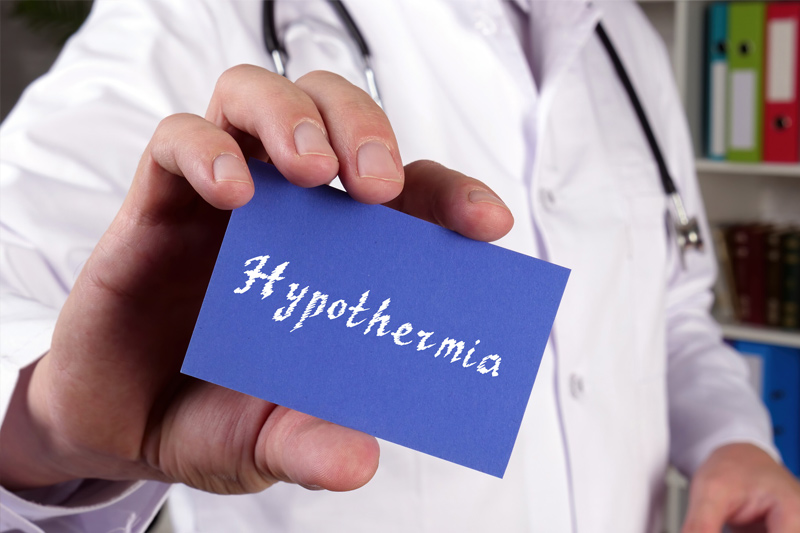Winter is approaching and along with it, the chances of cold weather related medical emergencies. Hypothermia or abnormally low body temperature is a medical emergency that can occur when a person is exposed to extremely cold temperatures due to cold weather or immersion in cold water. Doctors’ offices, ERs and hospitals see patients suffering from a variety of winter related medical emergencies. Physicians treating patients suffering from cold weather related medical conditions need to correctly document the medical services provided. Partnering with a reputable medical billing company can simplify the billing and coding process, and help manage claim submission processes accurately.
Let’s take a look at what hypothermia is and its related ICD-10 codes:
Caused by prolonged exposure to very cold temperatures, hypothermia can cause major complications – including death. While normal body temperature is around 98.6 F (37 C), hypothermia causes it to drop below 95 F (35 C). In severe hypothermia, body temperature can drop to 82 degrees or lower and if left untreated, the heart, nervous system and other organs will not normally, leading to failure of the heart and respiratory system, and eventually to death. The condition could also affect the individual’s ability to think clearly, which in fact can decrease their likelihood of seeking medical help.
Causes and Risk Factors
Hypothermia occurs when the balance between the body’s heat production and heat loss is affected in a way that heat loss dominates for a prolonged period. There are basically two major types of hypothermia: accidental and intentional.
Accidental hypothermia usually happens when the lack of warm, dry clothing exposes the body to cold, which drastically lowers body temperature. Intentional hypothermia body is induced lowering of body temperature, usually for a medical procedure.
Milder environments can cause hypothermia, depending on a person’s age, body mass, body fat, and overall health and duration of exposure to cold temperatures. Apart from exposure to the cold, other causes of hypothermia include medical conditions such as diabetes and thyroid conditions, some medications, severe trauma, or using drugs or alcohol.
People at increased risk for hypothermia:
- Older adults, infants, and children with inadequate food, clothing, or heating
- Babies sleeping in cold bedrooms
- People with mental illness
- People who remain outdoors for extended periods, such as the homeless, hikers, and hunters
- Those who use alcohol or illicit drugs
Symptoms of Hyperthermia
The most common warning symptoms of hypothermia include:
- Excessive shivering
- Exhaustion or feeling very tired
- Slowed breathing
- Slurred / slowed speech
- Drowsiness and clumsiness
- Stumbling
- Fumbling hands
- Memory loss
- Confusion
A person with excessive fatigue, a weak pulse, or is unconscious may also be hypothermic.
In babies, hypothermia symptoms include:
- Cold, bright red skin
- Lethargic
- Weak cry
- Cool extremities and abdomen
- Poor feeding
- Unusually low energy
If you suspect the symptoms of hypothermia in a person, call your local emergency number immediately. While waiting for emergency help to arrive, try the following strategies to bring the body back to a normal temperature:
- Replace any wet clothing with warm, dry coats or blankets
- Get the person into a warm room
- Use loose, dry layers of blankets, clothing, towels, or sheets to warm the body
- Give the person a warm drink
Get proper medical attention as soon as possible. Your healthcare provider or physician will diagnose hypothermia using a specialized thermometer that can detect very low core body temperatures and confirm a diagnosis.
Billing and coding for this life-threatening disorder could be complex as there are several rules related to reporting the condition correctly. Physicians need to correctly diagnose the symptoms of hyperthermia and report them using the right codes. The ICD-10 codes for hypothermia are –
- T68: Hypothermia
- T68.XXXA: Hypothermia, initial encounter
- T68.XXXD: Hypothermia, subsequent encounter
- T68.XXXS: Hypothermia, sequela
- P80: Hypothermia of newborn
- P80.0: Cold injury syndrome
- P80.8: Other hypothermia of newborn
- P80.9: Hypothermia of newborn, unspecified
- X31.XXXA: Exposure to excessive natural cold, initial encounter
To ensure correct and timely claims submission, billing and coding tasks can be outsourced to a reliable medical billing and coding company that offers the services of AAPC-certified coding specialists.




